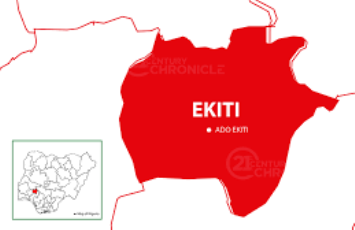Political stakeholders across Osun, Ondo, and Ekiti States have called for increased representation of women in leadership and political roles to enable them to contribute meaningfully to national development.
They emphasized the need to eliminate gender bias, segregation, and political imbalance to create space for women in key political positions and to reserve more seats for them at the state and national assemblies.
According to the stakeholders, women’s participation in politics is a fundamental prerequisite for gender equality and genuine democracy. It also facilitates women’s direct involvement in public decision-making and enhances accountability to women at all levels of governance.
Speaking with reporters in Osun State, Mrs. Ada Uchegwu, a member of the Peoples Democratic Party (PDP), described African women as some of the most capable leaders globally. However, she noted that structural bias within the political system continues to hinder their advancement.
“A female politician needs a vibrant political party platform that actively supports her candidacy—not just parades her for tokenism or political symbolism,” she said.
Uchegwu added that the country deserves fresh perspectives, especially from women, and should grant them opportunities to serve in key political positions.
Mr. Wale Oladapo, Convener of Concerned Nigerians for National Development, emphasized the need for a complete overhaul of Nigeria’s political structure to enable active female participation. He also called on civil society and non-governmental organizations to intensify advocacy for female candidacy.
Prof. Olugbemiga Afolabi, Head of the Political Science Department at Obafemi Awolowo University, Ile-Ife, highlighted the crucial role women play in national development. According to him, their participation will foster credible elections, boost social progress, and improve sectors such as education, agriculture, and healthcare.
In Ondo State, Mrs. Kemisola Adesanya, the PDP Women Leader, revealed that women interested in politics and nation-building are often threatened and marginalized by male counterparts. She advocated for constitutional provisions at both national and party levels to safeguard women’s political participation.
“Men often create obstacles that prevent women from supporting one another in politics,” she said.
Mrs. Temilola Odetola, Ondo State Coordinator of the Civil Society Organisations Strategy Group on Sustainable Development Goals (SDGs), called for legislative seats to be specifically reserved for women. She described women as effective resource managers capable of bringing the positive transformation the nation needs.
Mrs. Olamide Falana, a former Special Adviser on Gender to the Ondo State Governor, stressed that the process of women’s inclusion should be well monitored and not left solely to governors or party leaders. She emphasized the need for women to emerge through active involvement in their parties to avoid appointments based on favoritism.
Mrs. Funke Kumuyi, Chairman of Ikale West Local Council Development Area (LCDA) and an APC chieftain, lamented that despite women constituting a majority during election campaigns, they remain underrepresented in political offices.
She said the low percentage of women in leadership roles has dampened their morale and discouraged political participation.
Mrs. Roseline Akinnagbe, APC Ward Women Leader in Okitipupa, shared a similar sentiment. She noted that while many women abandon personal responsibilities to participate in campaigns, men end up with most of the rewards, leaving women with “political crumbs.”
Chief Christiana Ebisemiju, PDP Women Leader in Okitipupa LGA, also criticized the male dominance in politics, saying it has significantly reduced women’s activeness. She pointed out that after working hard during elections, women are often sidelined when it’s time for appointments.
In Ekiti State, Mrs. Olufunke Ajayi, a community leader and women mobilizer, lamented the low representation of women in both state and national legislative houses. She noted that the highest political office attained by a woman at the state level has been the position of deputy governor.
She, however, acknowledged that Ekiti is among the few states where a notable number of women hold respectable positions of trust.
Chief Victoria Ogunrinde, another community leader, praised the impact Nigerian women have made despite systemic challenges. “Women are still largely viewed as homemakers and are often denied the opportunity to contribute in political or public spaces,” she said.
Mrs. Morenikeji Aina, a retired schoolteacher, described women as a formidable, productive force and a vital human resource needed for national development. She called on the government to promote the formation of women’s cooperatives, especially in agriculture and business, to encourage networking and social engagement.
Dr. Olusola Osetoba, Technical Advisor to the Ekiti State Governor on Sports Development, urged governments at all levels to emulate Ekiti State by prioritizing women’s inclusion in both elective and appointive positions.
“Women in political offices often deliver on their mandates and contribute significantly to the progress of governance,” she said.


